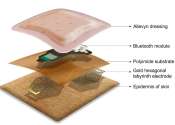Sheryl Sandberg, who helped to turn Facebook into digital advertising empire, to leave company board
Sheryl Sandberg, who helped to transform Facebook from a tech startup into a digital advertising empire, will step down from the board of Meta, Facebook's parent company.
Jan 18, 2024
0
1









